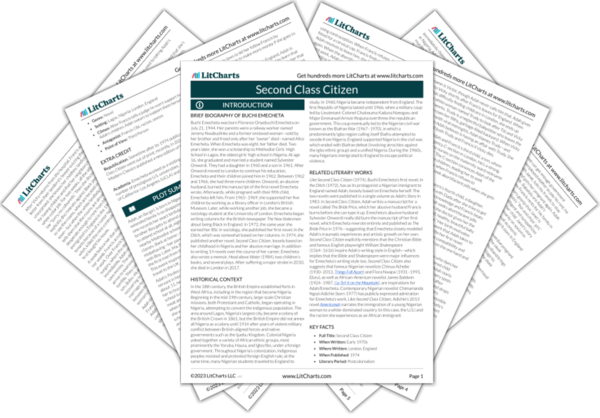Even though Adah and the nurse both believe in gender equality, Adah has had to navigate a cultural context in which achieving her educational and travel goals—and getting others to recognize her value—has required meeting certain sexist expectations, such as that good wives produce male children. When Adah tries to use her production of male children to establish her value in a different cultural context, it backfires—because while English culture in the novel is also sexist, it has different unreasonable standards for women than Nigeria does. Interestingly, even though Francis polices Adah’s gender performance, he himself fails to act “like a man” by Nigerian standards.
